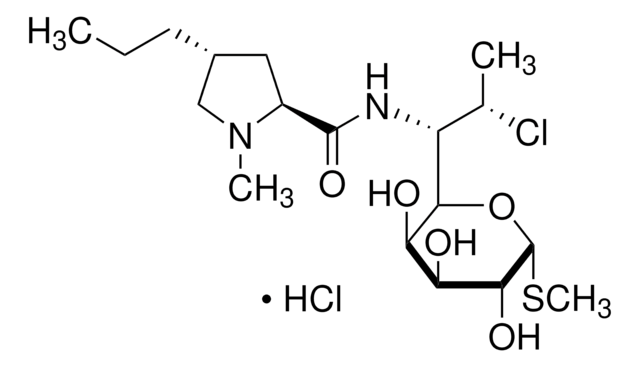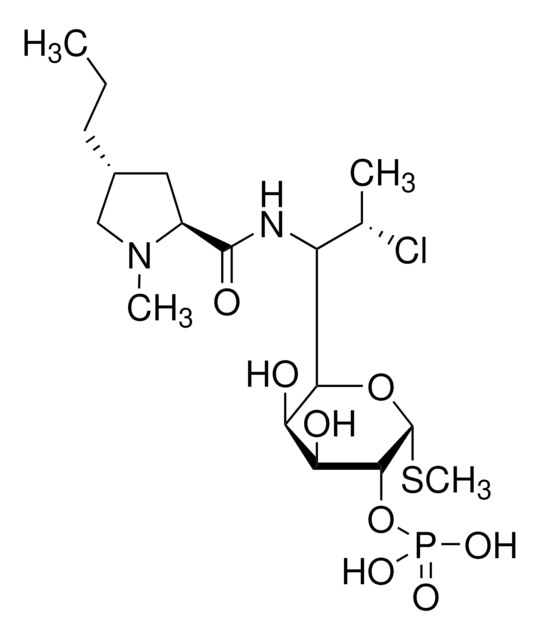1136002
USP
Clindamycin hydrochloride
United States Pharmacopeia (USP) Reference Standard
Synonym(s):
Clindamycin hydrochloride monohydrate, (7S)-7-Chloro-7-deoxylincomycin hydrochloride monohydrate
About This Item
Recommended Products
grade
pharmaceutical primary standard
API family
clindamycin
manufacturer/tradename
USP
application(s)
pharmaceutical (small molecule)
format
neat
storage temp.
2-8°C
InChI
1S/C18H33ClN2O5S.ClH.H2O/c1-5-6-10-7-11(21(3)8-10)17(25)20-12(9(2)19)16-14(23)13(22)15(24)18(26-16)27-4;;/h9-16,18,22-24H,5-8H2,1-4H3,(H,20,25);1H;1H2/t9-,10+,11-,12+,13-,14+,15+,16+,18+;;/m0../s1
InChI key
KWMXKEGEOADCEQ-WNNJHRBUSA-N
Looking for similar products? Visit Product Comparison Guide
General description
Application
Analysis Note
Other Notes
related product
Storage Class Code
11 - Combustible Solids
WGK
WGK 3
Flash Point(F)
Not applicable
Flash Point(C)
Not applicable
Regulatory Listings
Regulatory Listings are mainly provided for chemical products. Only limited information can be provided here for non-chemical products. No entry means none of the components are listed. It is the user’s obligation to ensure the safe and legal use of the product.
JAN Code
1136002-200MG:
Certificates of Analysis (COA)
Search for Certificates of Analysis (COA) by entering the products Lot/Batch Number. Lot and Batch Numbers can be found on a product’s label following the words ‘Lot’ or ‘Batch’.
Already Own This Product?
Find documentation for the products that you have recently purchased in the Document Library.
Customers Also Viewed
Our team of scientists has experience in all areas of research including Life Science, Material Science, Chemical Synthesis, Chromatography, Analytical and many others.
Contact Technical Service









